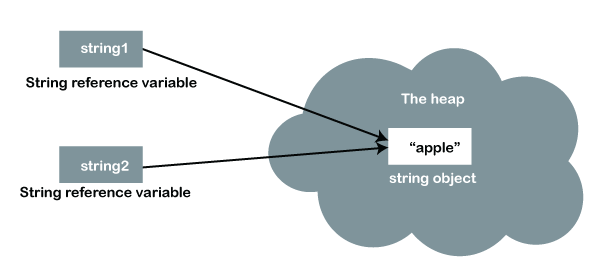What Is Immutable Strings and Just How It Functions
In the realm of shows, understanding the principle of immutable strings is critical for creating robust and secure applications. Immutable strings refer to strings that can not be changed after they are produced, making sure data honesty and predictability within the code.
The Fundamentals of Unalterable Strings
Unalterable strings, as a basic principle in programming, are personality sequences that can not be transformed as soon as they are created. This means that when a string is assigned a value, that value can not be modified. In languages like Python and Java, strings are unalterable things, resulting in different effects in regards to memory administration and data honesty.
Among the crucial advantages of unalterable strings is that they provide a complacency in information manipulation. Given that the web content of an immutable string can not be changed, it guarantees that the initial information continues to be intact, reducing the danger of unintentional adjustments during program implementation (Why are strings immutable in Java?). This residential or commercial property likewise streamlines debugging procedures, as developers can rely on that once a string is specified, its worth will not be inadvertently changed
When a new string is developed based on an existing one, instead than customizing the original string, the brand-new worth is kept individually. Overall, understanding the fundamentals of immutable strings is crucial for mastering programs ideas and maximizing code effectiveness.
Benefits of Immutable Strings
Building upon the security and performance advantages of immutable strings, their benefits reach improving code dependability and simplifying concurrent programming jobs. By being unalterable, strings can not be customized after creation, which gets rid of the danger of unintentional changes in the information they save. This fundamental immutability makes sure that when a string is developed, its value stays constant throughout the program's execution, reducing the opportunities of insects triggered by unexpected alterations.
In addition, unalterable strings add to code dependability by making it easier to reason concerning the state of a program. Considering that strings can not be changed, designers can trust that a string will certainly always hold the exact same value, streamlining debugging and maintenance efforts. This predictability causes extra reputable and steady codebases.

Execution in Programming Languages
Within numerous programs languages, the consolidation of unalterable strings is an essential element that influences how information is dealt with and adjusted within code structures. The implementation of immutable strings varies throughout different shows languages, with each language supplying its very own mechanisms to sustain this concept.

On the other hand, languages like C and C++ do not have integrated assistance for immutable strings. Designers in these languages must by hand execute immutability by imposing policies within their code to stop direct modifications to string top article things.
Finest Practices for Collaborating With Immutable Strings
When handling immutable strings in programming languages like Java and Python, sticking to ideal methods ensures efficient and safe and secure data control. One of the essential ideal methods is to use StringBuilder or StringBuffer rather of directly controling strings, specifically when dealing with substantial concatenation operations. These courses supply mutable options for string manipulation, aiding to stay clear of unneeded memory appropriations and improving performance.
Additionally, when working with sensitive data such as passwords or API secrets, it is critical to avoid saving them as ordinary message in immutable strings. Making use of safe and secure storage systems like char selections or specialized libraries for managing sensitive information assists mitigate security risks linked with immutable strings.
Real-world Applications and Instances
Discovering practical implementations of immutable strings in different markets exposes their substantial influence on data honesty and system reliability. In the health care sector, unalterable strings play a crucial role in making certain the security and about his privacy of individual data. By protecting against unapproved adjustments to delicate information such as medical records and prescriptions, unalterable strings aid keep compliance with rigorous personal privacy regulations like HIPAA.
Banks additionally gain from the immutable nature of strings to boost the security of customer information and transaction documents. Unalterable strings help stop fraudulence and unapproved alterations to monetary info, supplying a durable protection against cyber threats and making sure the count on and self-confidence of customers.

Verdict
Best practices for functioning with immutable strings include preventing direct modifications and using approaches that return brand-new string items. Real-world applications of unalterable strings include data file encryption, caching, and string adjustment jobs.
Unalterable strings refer to strings that can not be changed after they are developed, guaranteeing information stability and predictability within the code. When a brand-new string is created based on an existing one, rather than modifying the original string, the new value is stored individually.In languages like Java and Python, strings are immutable by default, implying that once a string object is produced, its value can not be changed - Why are strings my explanation immutable in Java?. Best practices for functioning with unalterable strings include avoiding direct modifications and using methods that return brand-new string objects. Real-world applications of immutable strings consist of data security, caching, and string manipulation tasks